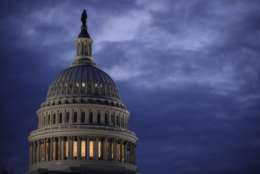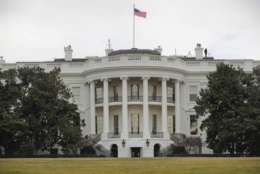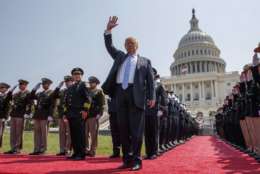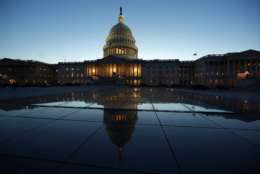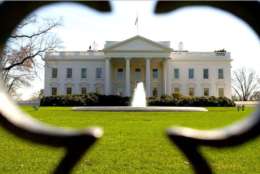White House
-
The Trump administration wants to make the federal retirement plan more costly to workers and less valuable to retirees. But officials could probably "drain the swamp" of thousands of bureaucrats if they made the changes effective later rather than sooner.
June 14, 2018 -
The American Action Forum counted about 3.75 deregulatory actions for every regulatory action under Executive Order 13771, based on data from the Office of Management and Budget.
June 12, 2018 -
Federal retirees in 1980 could establish a standard of living and keep it even during 14 percent inflation and 11-plus percent the following year. Now, the Trump administration has submitted a legislative package that would, among other things, eliminate cost of living adjustments for current and future workers retiring under the Federal Employees Retirement System.
June 06, 2018 -
Danielle Metz of the Office of Science and Technology Policy joined Federal Drive with Tom Temin in the studio for an update.
June 01, 2018 -
Politicians who want to reduce the cost of the federal retirement and labor-management programs say they are doing it for the most noble reasons.
June 01, 2018 -
In today's Federal Newscast, 18 Democratic senators asked National Security Adviser John Bolton to reconsider his decision to absorb the White House cybersecurity coordinator role into other existing positions.
May 31, 2018 -
Are you worried about the pay-more-get-less design changes Congress and the White House are considering for your Federal Employees Retirement System and Civil Service Retirement System plans?
May 31, 2018 -
In the news business the best way to bury a story is to release or leak it on the Friday afternoon before a major national holiday. Such was the case this Memorial Day weekend when three executive orders designed to whip the bureaucracy in shape were issued Friday afternoon.
May 30, 2018 -
The Public Employees for Environmental Responsibility sued for information only to find out the Trump administration kept no formal records.
May 23, 2018 -
The White House management agenda, which would trim take-home pay and eliminate inflation protection for retirees, could help union leaders recruit from workforce that has shifted.
May 22, 2018 -
COLAs are based on the rise in inflation, as measured by the Consumer Price Index-W, from the third quarter year over year. It's possible the January COLA will be less if living costs drop, but that is unlikely given the year-long rise in oil-prices, one of the chief drivers of inflation.
May 15, 2018 -
The White House is considering two executive orders and lawmakers are adding provisions to bills trying to limit agency exposure to Chinese made technology.
May 14, 2018 -
If you live and work in Washington long enough, you start running taking people’s — especially politicians', lawyers' and talking heads' — statements, actions and facts through your own filter.
May 11, 2018 -
Some politicians think the at-will hiring system is so good and works so well they want to extend it to federal civil servants in the executive branch.
May 10, 2018 -
The White House has revived old proposals to make feds pay more for, and get less from, their retirement package while also eliminating a gap payment for workers who retire before age 62, even if they are required to do so.
May 08, 2018







